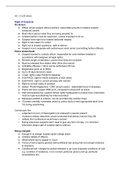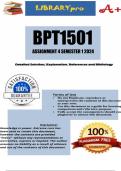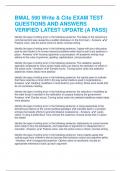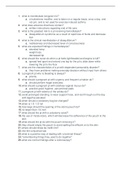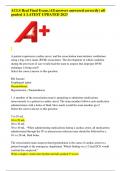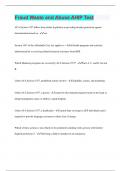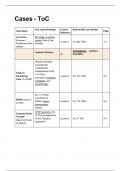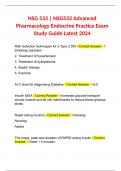Lecture notes
WJEC Criminology Unit 3 Crime scene to court room- AC 1.4 Controlled assessment notes
- Module
- Institution
Unit 3 Controlled Assessment Notes- from crime scene to courtroom. Has all assessment criteria with cases and evaluation (very detailed and predicted an A, over 60+ hours of work). Created using textbooks, class notes and the 2021 specification.
[Show more]
